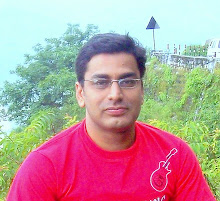Victory for Chavez
Saturday, December 13, 2008
ELECTIONS seem to be an annual feature in Venezuela. This year, it was the turn of local and gubernatorial elections, which were held in the third week of November. As predicted by opinion polls, President Hugo Chavez’s United Socialist Party of Venezuela (PSUV) won emphatic victories in 17 of the 23 States.
At the same time, the electorate sent a strong message to the government: PSUV candidates for Governor lost in five States, including the two most populous ones, and in the Capital District of Caracas. In the elections held four years ago, the opposition managed to win only two States. Among the candidates who were defeated this time were close allies of Chavez, the most prominent one being Aristobulo Isturiz, a former Education Minister. He was defeated in greater Caracas. The victor, Antonio Ledezma, is a confidant of former President Carlos Andres Peres. Peres, who now lives in the United States, once called for the assassination of Chavez. But overall, the results can be interpreted as a massive mandate for Chavez. His party polled around 57 per cent of the votes. The President’s personal popularity ratings have remained over 60 per cent for more than a year. In an address to the nation immediately after the election results were announced, Chavez said that the outcome has “ratified the construction of socialism in Venezuela and now we will deepen it”. He said that Venezuelans had participated in the elections in a “joyful and civic manner” but sarcastically added that some people would still insist that “there is a dictatorship in Venezuela”. A day later, the President said that his party would seek to amend the Constitution so that the head of state could have uninterrupted terms. Chavez narrowly lost a referendum on the issue last year. His current term expires in 2013.
Local issues predominated in the elections. The opposition belatedly gave up on its tactics of demonising Chavez and instead focussed on issues relating to crime, inflation and corruption. These are facts of life in Venezuela. The homicide rate in the capital, one of the highest in the region, has been worrying the authorities. Inflation has been high for some time now and is currently at 30 per cent, the highest in Latin America. But most Venezuelans have given credit to the government for efficiently managing the economy despite the alarming fall in the international price of oil. The government has used its $40-billion-dollar reserves prudently to ensure that its ambitious social programmes are not impacted adversely.
The latest election results show that the Bolivarian movement led by Chavez still faces formidable challenges. One important reason the opposition could make some gains is that both the print and electronic media continue to be monopolised by the pro-U.S. private sector. Private right-wing television stations continue to spew vitriol on Chavez and the government. The government-owned Telesur network, which was meant to be a counter to CNN and the American-financed private channels, has not been able to make much of an impact.
The election results are no doubt being keenly analysed in Washington. Relations between the two countries have gone from bad to worse under the George W. Bush presidency. Chavez welcomed the election of Barack Obama and expressed the hope that with a “black man” as President, bilateral ties would improve. “We hope that he tunes into the frequency of the world and convinces the U.S. hawks that it is impossible to dominate the planet,” Chavez said in his inimitable style.In the last week of November, a squadron of Russian warships arrived in Venezuela for the first time, and the navies of the two countries will be conducting joint exercises. This development is viewed with undisguised alarm in the U.S. Chavez has emphasised that strong relations with Russia are important in order to reduce U.S. influence in the region and maintain peace and stability.



0 comments:
Post a Comment